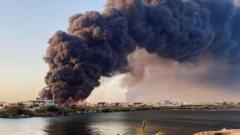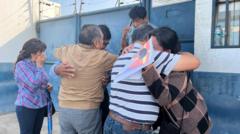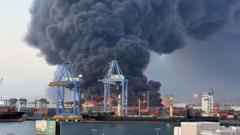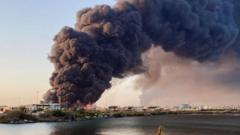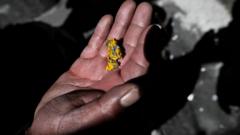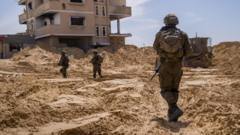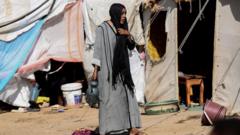South Sudan’s police chief announced a nighttime curfew after violent confrontations resulted in three fatalities and multiple injuries in Juba and Aweil. The unrest was ignited by revenge attacks against businesses owned by Sudanese, reflecting ongoing humanitarian crises and historical ethnic tensions exacerbated by the recent conflict in Sudan.
**Tensions Rise in South Sudan as Curfew Imposed Following Attacks on Sudanese Nationals**
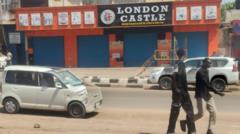
**Tensions Rise in South Sudan as Curfew Imposed Following Attacks on Sudanese Nationals**
A nightly curfew has been implemented in South Sudan amidst unrest following violent acts towards Sudanese residents, signaling escalating tensions in Juba.
As violence escalated, police took measures to safeguard Sudanese nationals, with reports of looting and targeted attacks on Sudanese-owned establishments. The curfew, effective from 18:00 to 06:00 local time, aims to curb further violence and protect property. Economic repercussions are also apparent as local businesses close and bread prices surge.
In historical context, tensions stem from decades of conflict over ethnic lines, with many Sudanese fleeing to South Sudan to escape violence. The situation remains volatile, with widespread police presence aimed at preventing further clashes.
The full scope of the unfolding events highlights the complexities in regional dynamics, with both immediate humanitarian needs and long-standing grievances contributing to the current unrest.
Empty line
Following a series of violent incidents in South Sudan targeting Sudanese nationals, a curfew has been put in place to restore order. The police chief confirmed three deaths and several injuries resulting from the unrest, which erupted in response to acts of violence filmed in Sudan. As curfews are instituted and police safeguard targeted communities, the incident underscores not only present-day tensions but also deep historical divides tied to ethnic and national identities. Amidst the chaos, local economies suffer as businesses close and prices rise, signaling broader implications for stability in the region.
In historical context, tensions stem from decades of conflict over ethnic lines, with many Sudanese fleeing to South Sudan to escape violence. The situation remains volatile, with widespread police presence aimed at preventing further clashes.
The full scope of the unfolding events highlights the complexities in regional dynamics, with both immediate humanitarian needs and long-standing grievances contributing to the current unrest.
Empty line
Following a series of violent incidents in South Sudan targeting Sudanese nationals, a curfew has been put in place to restore order. The police chief confirmed three deaths and several injuries resulting from the unrest, which erupted in response to acts of violence filmed in Sudan. As curfews are instituted and police safeguard targeted communities, the incident underscores not only present-day tensions but also deep historical divides tied to ethnic and national identities. Amidst the chaos, local economies suffer as businesses close and prices rise, signaling broader implications for stability in the region.





